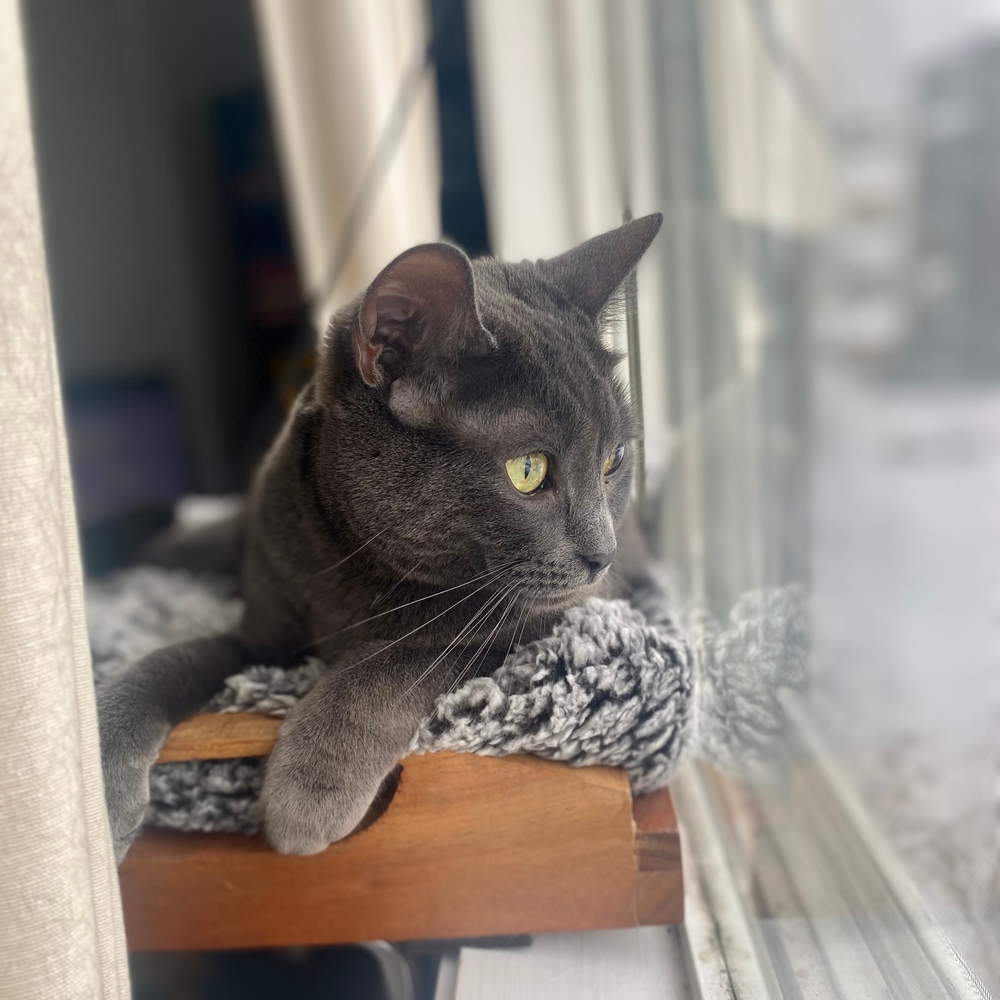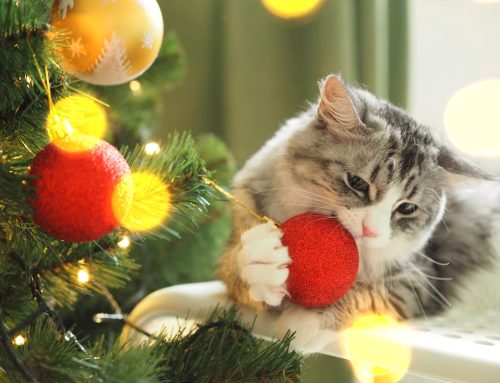Your cat may enjoy a pampered lifestyle—hours spent napping, meals on demand, toys galore, and no bills or responsibilities—but they are not immune to stress, and they can suffer from some of the same fears and anxieties that affect people. However, felines instinctually mask discomfort and uncertainty signs, often suffering from stress in silence. No one likes to feel stressed, which can also be an early health condition sign. Our Star of Texas Veterinary Hospital team wants to help you understand your cat’s needs and identify when they feel stressed.
What can cause my cat to feel stressed?
Cats are creatures of habit who thrive on routine. Even slight changes can make your feline friend feel insecure and anxious. While changes affect every cat differently, your cat may become anxious in response to these situations:
- Joining a new family — Adopting a kitten or cat is an exciting time, but the transition to a new home can be stressful for your new feline, and they will need time to adjust to the unfamiliar sights, smells, and people.
- Moving to a new home — Cats are territorial creatures who form strong bonds with their surroundings. Moving to a new home can disrupt their sense of safety.
- Renovating your home — The noise, disruption, and unfamiliar workers’ presence during a home renovation can be unsettling for your cat. Even simple changes to your home’s layout or appearance, such as rearranging the furniture, can disorient your cat.
- Bringing home a new baby — A baby is a bundle of joy, but a strange, noisy, strange-smelling bundle to your cat! The new smells, sounds (e.g., crying), and a shift in household members’ attention can make your cat feel less secure in their home.
- Hosting houseguests — Cats are not the best hosts, as they often find strangers in their territory stressful. Visitors’ scents and presence, coupled with disruptions to their daily routine, can cause anxiety and leave your pet hiding until your guests go home.
- Adopting a new pet — Introducing a new pet into your household changes the social dynamics to which your current cat is accustomed. Whether you bring home another cat, a dog, or even a smaller pet such as a rabbit, your current cat may view this as an invasion of their territory. Your cat can exhibit stress signs and behavioral changes until they adjust to their new housemate.
- Visiting the veterinarian — While regular veterinary visits are essential to your cat’s health, being placed in a carrier, riding in the car, arriving at an unfamiliar environment, and being handled by strangers can be nerve-racking.
- An underlying health condition — Discomfort from conditions, such as urinary tract infections (UTIs), dental issues, or arthritis, are among the most common causes of chronic (i.e., ongoing) feline stress.
By recognizing these potential feline stressors, you can take proactive measures to help your cat cope with life’s challenges. If you plan a major household change, call our Star of Texas Veterinary Hospital team to learn how to help curb your cat’s potential anxiety in response to the upcoming changes.
What are feline stress signs?
Cats often communicate their distress through subtle signs. If your cat is feeling stressed, they may let you know by exhibiting the following behavioral changes:
- Urinating outside the litter box — If your cat starts urinating outside their litter box, the first step is to have our veterinary professionals rule out a medical problem. If your cat is deemed healthy, this behavior may be an attempt to communicate their discomfort or stress.
- Excessive grooming — While cats are known for their grooming habits, excessive grooming may be your cat’s way of soothing their nerves.
- Frequent scratching — Cats need to scratch to mark their territory, stretch, and shed their claw sheaths. However, excessive scratching, especially in new or multiple inappropriate areas, could be your cat’s way of alleviating stress or anxiety.
- Reduced appetite — Stress can cause your cat to lose their appetite. If your cat suddenly loses interest in their food or stops eating altogether, contact our team.
- Lethargy and decreased energy — While cats are known to love sleep, a noticeable energy or activity-level decrease can mean they are feeling stressed.
- Decreased interest in socializing — Cats’ sociability varies greatly, but if your normally social feline starts avoiding interaction with humans or other pets, and spends more time hiding, they may be experiencing stress.
What should I do if my cat is stressed?

Being aware of common cat stressors can help you take action to soothe your cat’s anxiety. To help your cat cope with challenging situations, follow these tips:
- Maintaining a consistent routine.
- Facilitating gradual introductions to new environments and people.
- Providing your cat with safe spaces such as a quiet room and an elevated perch.
- Scheduling a veterinary appointment to rule out an underlying health condition.
If you suspect your cat is suffering from stress, contact our Star of Texas Veterinary Hospital team, so we can determine the source and devise a strategy to help alleviate the issue.







